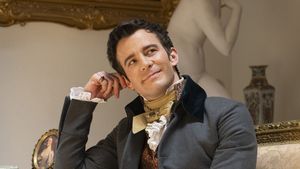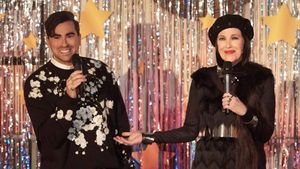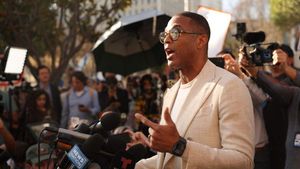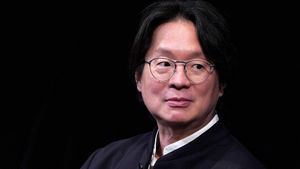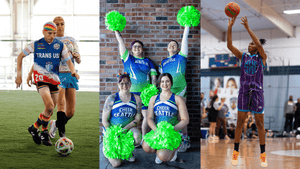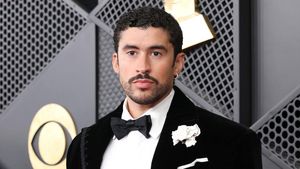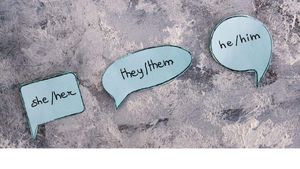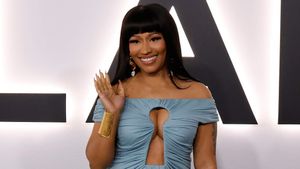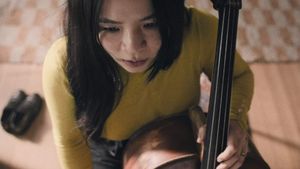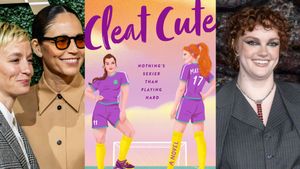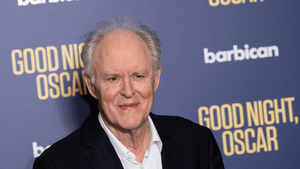Treatment GuideJust DiagnosedSex & DatingAfrican AmericanStigmaAsk the HIV DocPrEP En EspañolNewsVoicesPrint IssueVideoOut 100
CONTACTCAREER OPPORTUNITIESADVERTISE WITH USPRIVACY POLICYPRIVACY PREFERENCESTERMS OF USELEGAL NOTICE
© 2026 Pride Publishing Inc.
All Rights reserved
All Rights reserved
By continuing to use our site, you agree to our Privacy Policy and Terms of Use.
Throughout all of my ups'but especially my downs'of living with HIV and now AIDS, I must admit that I don't know how I would have made it this far without my music. From the menacing riffs of rock to the in-yo'-face posturing of hip-hop, the sounds that have emitted from my stereo system over the years gave me the wherewithal to size up my deadly virus each day and stare it down. In 2001, when my doctor told me that my HIV might be progressing toward the big disease with the little name, I looked for'and found'resilience in the grandstanding lyrics of Dirty South rappers like Mystikal, whose post-9/11 groove 'Bouncing Back' made me believe that you could rebound from anything. And, too, music was my HIV support group before I ever disclosed my serostatus to anyone. When thoughts of my mortality overwhelmed me, I'd cue up hours of soul-stirring gospel CDs. The transformative power of music recently led me to pony up for an Apple iPod. It stores some 2,500 songs. That might seem excessive, but you wouldn't say so if you've ever spent hours in a crowded emergency room or public health clinic waiting for your name to be called, or days in a bleak hospital hooked to an IV while eating bad food, watching bad TV, and listening to your roommate hack himself into a stupor. Suddenly, 2,500 songs seem barely enough. Those days and nights in my shared hospital room stocked with too many sterilized bed sheets and too few warm blankets could be what prompted me to download eight different renditions of Sam Cooke's 'A Change Is Gonna Come.' Or prompted a relative of mine to rush to play me key lyrics from Hezekiah Walker's 'I Need You to Survive' on her personal MP3 player: 'It is his will that every need be supplied / You are important to me. I need you to survive.' Music, it seems, has colored so much of my experience with HIV, I began to wonder if others infected with the virus had been experiencing the same. Did having HIV create a hyperemotional response to music? Did it add or subtract something from a listener's experience? Did it deepen it? Make it richer? Did it make the blues bluer? Did the bass seem phatter or flatter? Did it provide a place to bury our fears? 'I believe music is the thread of our existence and connection to one another,' says Anthony Hollins, an HIV-positive dancer and choreographer based in Chicago. 'Music is the tool that we use to journey through our life's experience.' It's an especially important tool, I've found, to have with you when you're charting this kind of unknown territory, when you are so unsure of what will happen next. Hollins says that one of the songs that inspired him to keep dancing after learning in 1996 that he is HIV-positive is 'Millions' by the Winans. He has since relied on dance and music to bring him through the highs and lows of living with HIV. And Ron Simmons, executive director of the community-based organization Us Helping Us in Washington, D.C., says he often listened to jazz vocalist Cassandra Wilson to help facilitate his tears during a 1996 double bout with pneumocystis carinii pneumonia and tuberculosis. But come what may, turn it up, baby, turn it up. Whitfield is one of the nation's leading journalists reporting on AIDS among African-Americans. A frequent Vibe contributor, he is based in New York City. Write to Whitfield at leroy@hivplusmag.com.
From our Sponsors
Most Popular
“So much life to live”: Eric Nieves on thriving with HIV
September 03 2025 11:37 AM
The Talk: Beyond the exam room
August 13 2025 3:15 PM
Messenger RNA could be the key to an HIV vaccine — but government cuts pose a threat
August 20 2025 8:02 AM
It’s National PrEP Day! Learn the latest about HIV prevention
October 10 2025 9:00 AM
Amazing People of 2025: Javier Muñoz
October 17 2025 7:35 PM
The lab coat just got queer
August 21 2025 10:00 AM
The Talk: Owning your voice
August 25 2025 8:16 PM
“I am the steward of my ship”: John Gibson rewrites his HIV narrative
September 16 2025 2:56 PM
Plus: Featured Video
Latest Stories
HIV-positive men stage 'Kiss-In' protest at U.S.-Mexico border
December 01 2025 12:56 PM
What the AIDS crisis stole from Black gay men
December 01 2025 6:00 AM
The Talk: Navigating your treatment
August 01 2025 6:02 PM
The Talk: Starting the conversation
July 25 2025 4:47 PM
Thanks to U=U, HIV-positive people can live long, happy, healthy lives
July 25 2025 2:37 PM
How the Black AIDS Institute continues to fill in the gaps
July 25 2025 1:06 PM
“I felt like a butterfly”: Niko Flowers on reclaiming life with HIV
July 23 2025 12:22 PM
Dancer. Healer. Survivor. DéShaun Armbrister is all of the above
July 02 2025 8:23 PM
BREAKING: Supreme Court rules to save free access to preventive care, including PrEP
June 27 2025 10:32 AM
1985: the year the AIDS crisis finally broke through the silence
June 26 2025 11:24 AM
VIDEO: A man living with HIV discusses his journey to fatherhood
June 10 2025 4:58 PM
Trump admin guts $258 million in funding for HIV vaccine research
June 03 2025 3:47 PM
Grindr is reminding us why jockstraps are so sexy and iconic
May 02 2025 5:36 PM
HRC holds 'die-in' to protest Trump health care cuts
April 28 2025 2:11 PM
Two right-wing Supreme Court justices signal they may uphold access to PrEP and more
April 21 2025 4:10 PM
500,000 Children at Risk: PEPFAR Funding Crisis
April 08 2025 3:51 PM































